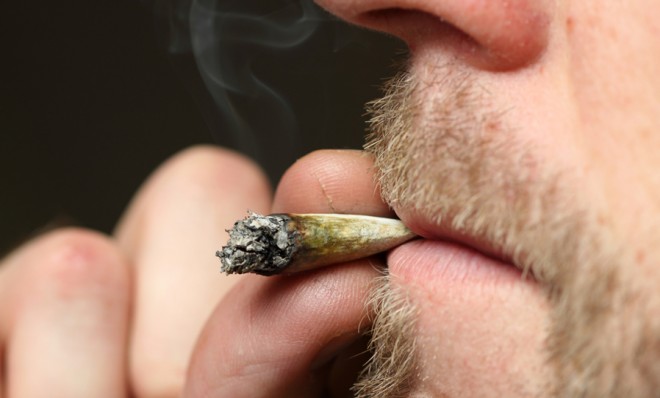Puff, puff, tax: Why some state budgets are banking on weed
Can "high" taxes save states that are struggling for cash?

A free daily email with the biggest news stories of the day – and the best features from TheWeek.com
You are now subscribed
Your newsletter sign-up was successful
They legalized it. Now they want to tax it.
Lawmakers in Colorado and Washington state are looking to bolster their budgets by taxing recreational marijuana, which voters approved in November. Not everyone, however, views such proposals as the best option for cash-strapped states looking for a revenue fix. Why are people harshing on your buzz? A look at the pros and cons of taxing weed:
The upside
The Week
Escape your echo chamber. Get the facts behind the news, plus analysis from multiple perspectives.

Sign up for The Week's Free Newsletters
From our morning news briefing to a weekly Good News Newsletter, get the best of The Week delivered directly to your inbox.
From our morning news briefing to a weekly Good News Newsletter, get the best of The Week delivered directly to your inbox.
Money. Lots of it. According to Politico, lawmakers are getting excited "with talk that a tax on marijuana could pump hundreds of millions or even billions into budgets still reeling from the recession."
In Washington state, legislators are looking at a tax on "all trademarks, trade names, brand names, patents and copyrights related to marijuana" that would help fund agricultural research, according to the Seattle Times. The state also wants to impose a 25 percent tax on marijuana growers, processors, and retail stores.
The total haul? Washington's Office of Financial Management says it could bring in more than $565 million in 2017.
Colorado is considering a 15 percent tax on wholesale marijuana purchases for businesses and a sales tax for consumers that could be set as high as 25 percent, according to the Denver Post. Last year, a study by the Colorado Center on Law and Policy estimated that regulating marijuana like alcohol could raise about $47 million.
A free daily email with the biggest news stories of the day – and the best features from TheWeek.com
In these scenarios, state budgets would get an infusion of cash, while smokers light up without fear of arrest. So why isn't everyone feeling irie?
The downside
Raise taxes too high and you'll drive pot-smokers back to their dealers, says Rep. Jared Polis (D-Colo.):
You want to make sure the black market doesn't have an advantage over the regulated market because if it does, then the whole concept fails and people will continue to buy marijuana illegally — so there has to be a price advance for the legal market. [Politico]
Sky-high tax revenue projections might also be too optimistic because nobody really knows how big the marijuana market is. And lawmakers shouldn't forget to account for the cost of actually regulating legalized weed. Rep. Dave Reichert (R-Wash.), a former police officer, tells Politico, "I don't think the revenue they raise will be near enough to cover the cost of regulating pot stores."
The biggest fear of all, though, is that the federal government will eventually reap all the rewards. As The Washington Post reports, "business owners say they're anxious about the intentions of the federal government, which could seize millions of dollars they have invested or even send them to prison." Planning state budgets can be tricky if you're scared that hundreds of millions in tax revenue might go up in smoke. The federal government has yet to officially respond to the legalization of marijuana in the two states, though Attorney General Eric Holder says the Obama administration will have its say soon. If that makes state lawmakers and pot aficionados nervous, they'll at least have something to treat their anxiety.
Keith Wagstaff is a staff writer at TheWeek.com covering politics and current events. He has previously written for such publications as TIME, Details, VICE, and the Village Voice.
-
 The Olympic timekeepers keeping the Games on track
The Olympic timekeepers keeping the Games on trackUnder the Radar Swiss watchmaking giant Omega has been at the finish line of every Olympic Games for nearly 100 years
-
 Will increasing tensions with Iran boil over into war?
Will increasing tensions with Iran boil over into war?Today’s Big Question President Donald Trump has recently been threatening the country
-
 Corruption: The spy sheikh and the president
Corruption: The spy sheikh and the presidentFeature Trump is at the center of another scandal